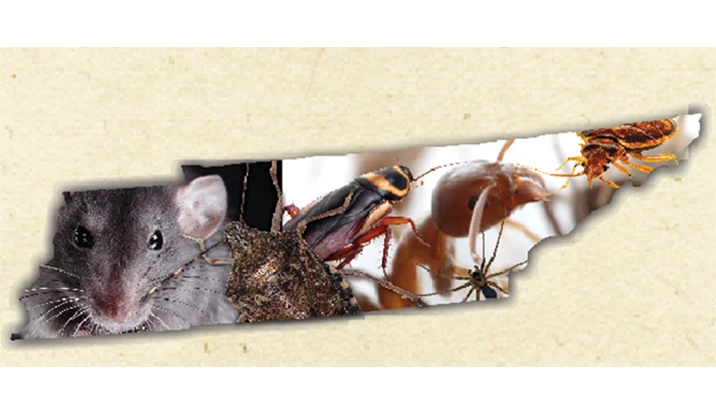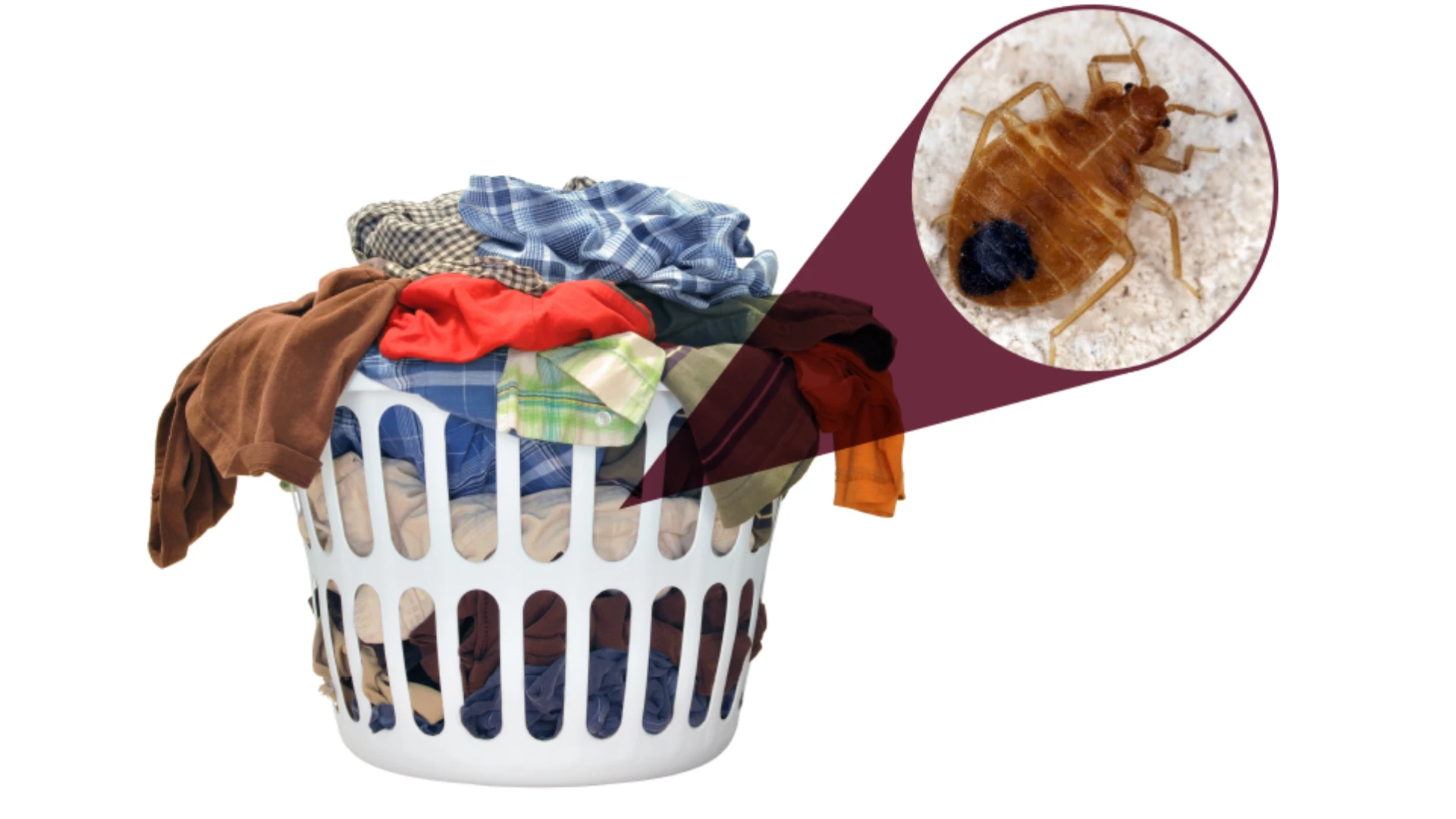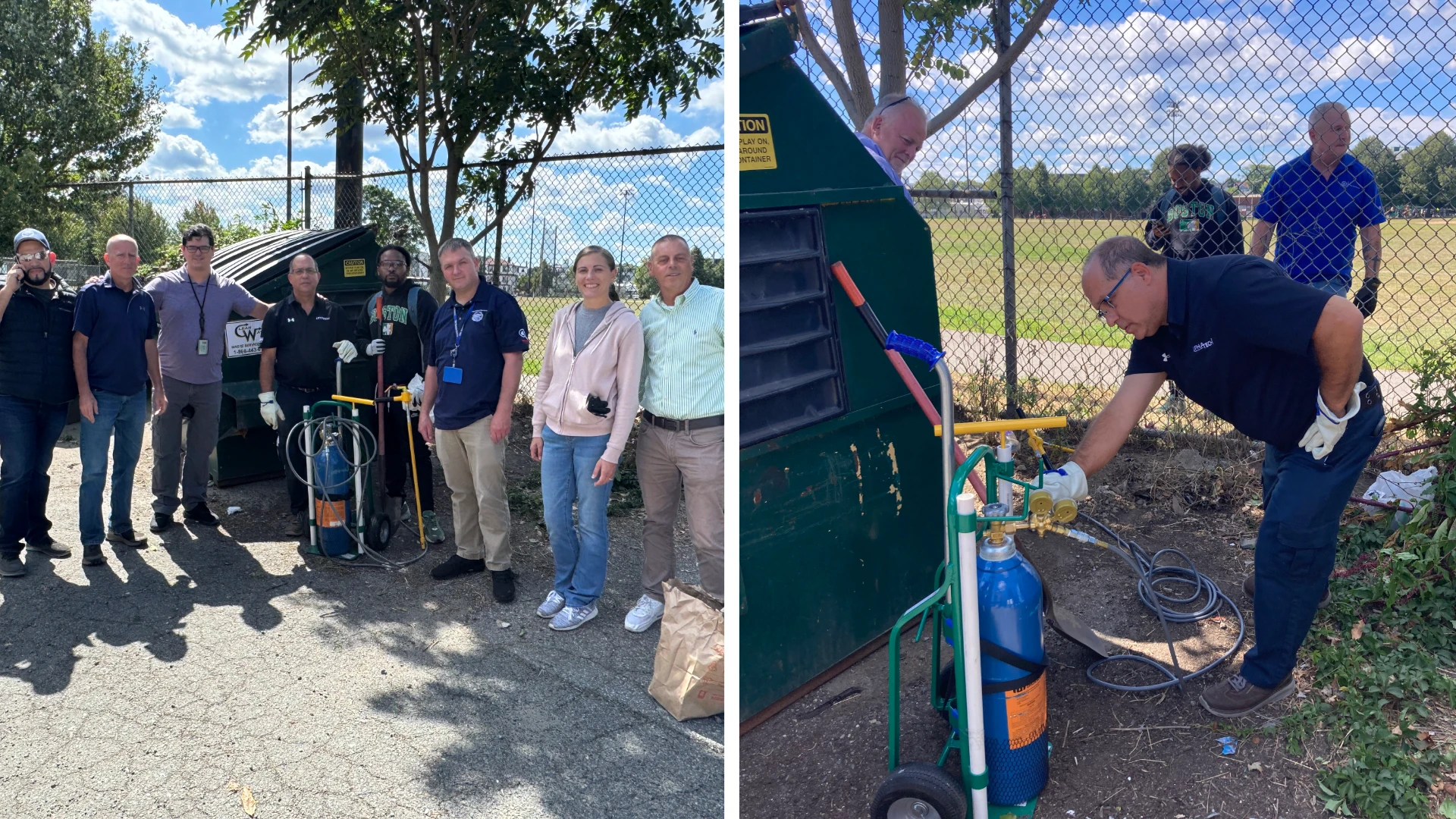

By Ron Schwalb
Welcome to the great state of Tennessee! I have been associated with the pest management industry in Tennessee for more than 40 years and I am honored to be able to give you some insight into this state’s pest management industry. Tennessee can be divided into three regions, each with its own individual history, industry pioneers and pest concerns.
From the shores of the Mississippi River to the summit of the Smokies, Tennessee has a rich heritage in pest management. You might say that a portion of that heritage started back in 1927 with Mr. E.L Bruce of Memphis, a lumber company owner who needed termite prevention for his hardwood flooring products. This need spurred him to create a new company and even patent a termite treatment process. That company was Bruce-Terminix, which later became Terminix International. Throughout the years additional one-man companies and others have grown and prospered to provide a number of highly respected and professional pest management organizations in the state today.
Professionalism, education and state regulations developed hand-in-hand over the years. According to the book The Ratcatcher’s Child the pest control industry in Tennessee began creating professional associations over 75 years ago along the lines of the three distinct regions: west, central and east. The first organization on record was the Memphis Pest Control Association, which began to organize in 1933, with Joe Hill as the president in 1936; it later became the West Tennessee Pest Control Association. Other early organizations include:
- 1949: Tennessee Pest Control Association, William Hill, president;
- 1951: Middle Tennessee Pest Control Association, C. C. McKelvey, president;
- 1971: East Tennessee Pest Control Association, Leo Carrier, Joe Culverhouse and Russell Bull, founders;
- 1978: Chattanooga Pest Control Association, Ernie Green, president.
‘Go To’ Sources.
As the industry grew, it became evident that an educational resource was needed. As a result, in 1971 a pest control technician’s school was initiated by the University of Tennessee Agricultural Extension Service. This school was directed by Dr. Harry Williams and over the years developed into an excellent training venue. In fact, I attended my first technician school in 1973 and consider Dr. Williams to be one of my original mentors in this industry. Today, Dr. Karen Vail is the Tennessee Agricultural Extension Service “go to” entomologist. She provides great support to the pest management industry and works diligently to improve IPM programs for our school systems.
Tennessee PCOs Raise $50,000 in Scholarship Funds
The East Tennessee Pest Control Association and its members presented the University of Tennessee Institute of Agriculture’s Department of Entomology with a pair of $25,000 scholarships.
The scholarship donations were announced this past spring at the annual Smoky Mountain Pest Management Conference in Pigeon Forge, Tenn.
The scholarships were named in honor of Dr. Karen Vail, whose research was recently acknowledged by the Entomological Society of America-Southeastern Branch through its “Distinguished Award in Urban Entomology.”
“Everyone’s affected by pests in and around their home and it’s nice for the industry to really help us to help them,” Vail told Local 8 Now. “So they’re going to be providing us a student, but we’re going to be addressing the issues, the difficulties they’re having controlling pests, and we’re going to try to find some solutions for them.”
One of the biggest pest problems now is bed bugs, and the students will do a lot of research to help come up with ways to rid homes of these pests, Vail said. Added Ray Johnson, president of Johnson Pest Control, “[Bed bugs] are great hitchhikers, so they can hitchhike as you travel, and in our area we’ve had a lot more travel from people all over the world,” he said. “We are controlling them every day. They are a national problem.”
The Tennessee Department of Agriculture Division of Consumer and Industry Services is the regulatory body over pest management in the state. Pesticide Administrator Kathy Booker, along with supervisors and inspectors for each region, regulates professional pest management companies to ensure statutes and rules are followed. Tennessee is a state where industry and regulatory officials work closely together to ensure professionalism and consumer protection.
Tennessee has an excellent distributor network that supplies our local companies with educational resources, training and updates on the latest products. Memphis-based Oldham Chemicals Company was founded by Millard and Ada Oldham back in 1966. The Oldhams are still very active in the business today along with Tommy and Marsha Reeves. Other well established distributors in the state include Forshaw, Univar and John Deere. Tennessee professionals are very appreciative of these companies and their strong industry support in training, product knowledge and customer service.
Diverse Regions.
The three regions of the state are made up of the Appalachian/Smoky Mountains and foothills in the east, westward to central plateaus and rolling hills to the Nashville area; and then finally to level farmland, Memphis and the Mississippi River in the west. Each of these regions has its own unique climate, population centers and pest pressures. I began polling a few “homegrown” pest professionals I know in these areas to get some kind of gauge about the different pest pressures that face their companies on a day-to-day basis.
In the upper east corner in Johnson City, Perry Carrier, owner of Leo’s Pest Control, says his company constantly battles ants, spiders and bed bugs in residences, as well as carpenter bees in the spring and yellowjacket nests in late summer. In the fall, they are inundated with brown marmorated stink bug infestations and have begun to provide late summer exterior crack-and-crevice treatments and caulking services.
Moving west down to the foothills of the Great Smoky Mountains you’ll find Ray Johnson, owner of Johnson Pest Control and a past president of NPMA. Johnson says his No. 1 pest is bed bugs, which infest not only vacation rentals and motels,but also are becoming well established in residences. Second on his list is the odorous house ant. (A note for you entomologists, the Great Smoky Mountains National Park is also home to an unusual species of synchronous firefly. Now an extremely popular tourist attraction during summer nights, the fireflies light up at the same time, staging a spectacular light show.)
Going a little further west to Knoxville, Dayton Hylton, owner of Dayton’s Pest Control, says his No. 1 pest is the odorous house ant, but he also has issues with springtails entering houses from exterior mulch beds. The mosquito business has been good this summer and fire ants are spreading in the area. He also begins preventive treatments for invading brown marmorated stink bugs and kudzu bugs in late August.
Further west into the middle Tennessee region and the Nashville area, Andy Yant, owner of P.E.S.T. Inc., observes that termite treatments were up this year, odorous house ants have been a major problem, bed bug treatments have increased and brown recluse spiders have been intense this summer. Tommy Swint, Mack Pest Control, says odorous house ants continue to be a big issue for his company, while brown recluse services increased during the summer and bed bug services are also growing. Tom Dixon, manager at U.S. Pest Protection, reports the termite season has been strong, mosquito services are growing (Nashville is listed as one the top ten mosquito-infested cities on several surveys) and there is continued intense pressure from odorous house ants, as well as a very high number of services for brown recluse spiders and bed bugs.
In the far west region of the state, Carl Forehand, owner of Forehand Services in Memphis, says eight out of 10 calls his company receives are for ant control. Ninety-five percent of these calls are for odorous house ants with the remainder for carpenter and Argentine ants. Perimeter pests such as ground beetles and earwigs are a problem during extremely wet or dry weather. David Pence, technical director with Allied Termite and Pest Control, in the Memphis area, says odorous house ants are the main ant focus. Additional concerns are American roaches, brown recluse spiders, mosquitoes and roof rats. The University of Tennessee Extension Service’s Dr. Vail says the brown marmorated stink bug — a farm crop pest — and the kudzu bug, which feeds on the kudzu vine and soybean, are on the move and becoming well established as invasive pests when they enter homes and buildings to overwinter. She reports fire ants continue to move into new territories in the state.
Looking Ahead.
As you can see, pest management is somewhat different in each of the Tennessee regions, and it is especially dependent on the weather conditions each receives during the year. Throughout the state, odorous house ants are clearly at the top of the list, along with services for mosquitoes and bed bugs. In the east, perimeter invaders such as kudzu bugs and marmorated stink bugs will continue to be a growing problem. Brown recluse spiders are very well established in the central area of the state. The west deals with argentine ants, American cockroaches and roof rats.
I have been involved with the pest management industry in Tennessee since the early 1970s and have seen a lot of changes, all for the better. We now have better educational resources, follow IPM protocols with targeted product applications and abide by improved regulations. Our young technicians are tech savvy, and more technology is being utilized as a result. Yes, I have mentioned a number of names in this article — it’s because this industry is made up of people, such as technicians, regulators, distributors and educators who started companies, who began associations, who worked tirelessly establishing, expanding and improving pest control and management in Tennessee for everyone’s benefit. From the past to the present and into the future, people are the basis for this incredible industry that protects the public’s health and property.
Here in middle Tennessee, the Nashville area is becoming one of the fastest-growing regions of the country, and I am very pleased to be the technical director of a rapidly growing and progressive company like U.S. Pest Protection. I sincerely enjoy the opportunity to work with Erica Brister, our company president, and all our employees and PMPs. So let me join with all the Tennessee pest management professionals in welcoming you to Nashville, “The Music City.” I hope you enjoy the convention as well as the sights and sounds of this very special area.
The author is board certified entomologist and corporate technical director for U.S. Pest Prevention, Nashville, Tenn.

Explore the October 2015 Issue
Check out more from this issue and find your next story to read.
Latest from Pest Control Technology
- Rentokil Terminix Expanded in Key Markets with 2024 Acquisitions
- In Memoriam: Joe Cavender
- Certus Acquires Green Wave Pest Solutions
- Liphatech Adds Alex Blahnik to Technical Team
- Do the Right Sting: Stinging Insect Identification, Management, and Safety
- VAGA's 8th Annual Veterans Thanksgiving Appreciation Dinner
- Clark's Blair Smith on the Response to Increased Dengue Fever Cases in Southern California
- WSDA, USDA Announce Eradication of Northern Giant Hornet from U.S.





